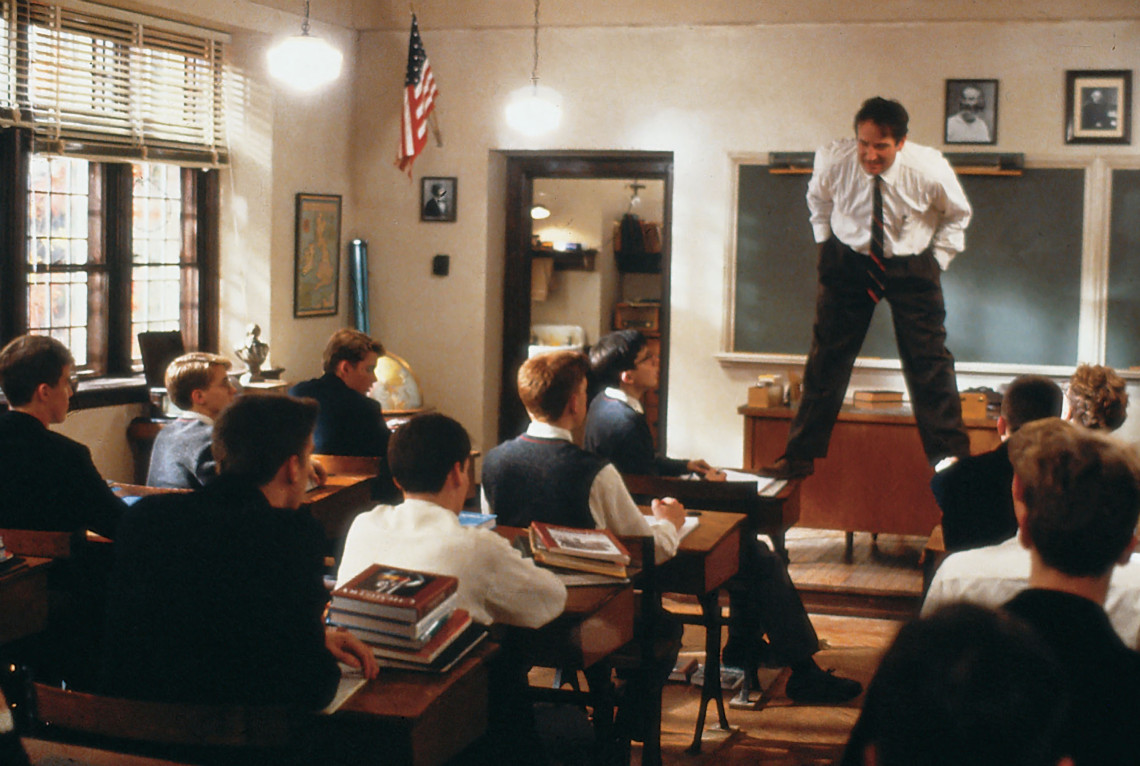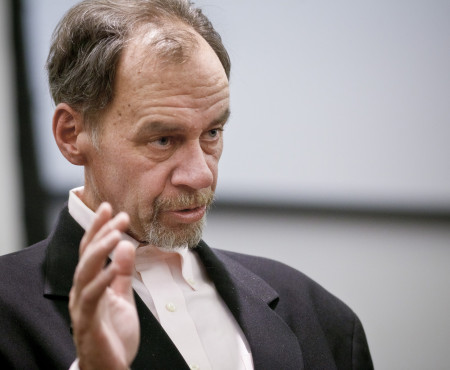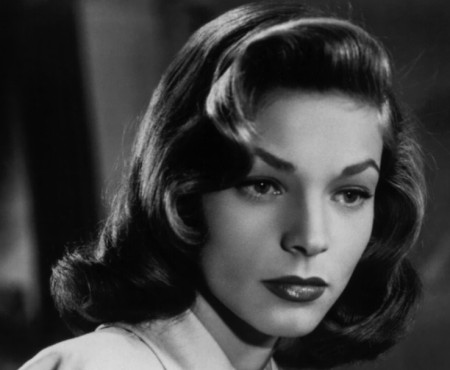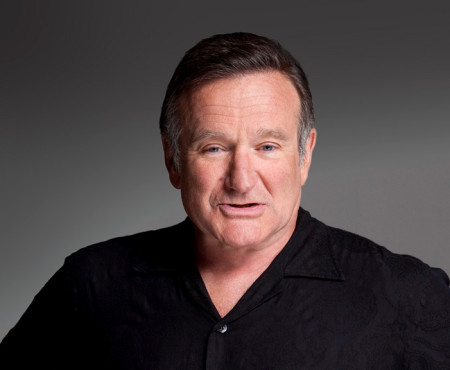The role of a teacher, in Dead Poets Society, always struck me as a perfect one for Robin Williams. After all, what is a teacher—like an actor—but someone whose gift finds its natural habitat in front of attentive observers, practiced within the rigidity of one-to-two hour periods? And what is a great teacher—like a great movie star—but someone who sees their abilities and influence extend beyond the confines of four walls and brief time periods and into the day-to-day lives of those blessed with them?
It’s certainly what happens to the students of Robin Williams’ Mr. Keating in Dead Poets Society, a film about the ability of one teacher, with an extraordinary gift for understanding and inspiring, to change people’s lives forever. Keating’s wisdoms and encouragements are absorbed like seismic existential shifts in the personal autobiographies of his students. It’s an ability Williams himself possessed to uncanny effect.
As an actor, Williams was always too big to stay trapped on the screens he appeared on. Not just because of his five-Red Bull rat-a-tat-tat energy, but because—even at his most manic—he felt too familiar, too well known to us to be someone limited to a television or theater screen. They couldn’t contain him. He spilled outwards and inward, leaving us to carry his movies, their sentiments, and—most of all—him with us all the years.
Some of us are only realizing how much that’s true now that he’s tragically gone. I’m one of them. Like many, I’ve always carried a nigh-instinctual adoration for Robin Williams. But in the days since his passing, my mind has continued to hover over his filmography, and every time my mind has settled upon thinking of one of his movies, unexpected memories have surprisingly rippled outwards. More so than I ever would have guessed. I too am not exempt from Williams’ remarkable ability to influence, reflect, and comfort. Here are some:
I. Mork and Mindy teaching me, an over-serious child, that it was okay to be vulnerable, silly, and uninhibited. After all, if this adult with rainbow suspenders could act let himself go to any whimsical inclination, why couldn’t I?
II. Hook comforted me about my own corporately absent father, with Williams’s performance achingly capturing both the dad I knew all too well, and the one I wished I had. In believing in his own Peter Pan, Williams made be believe that just maybe a Peter Pan lay dormant in my father too.
III. Williams devoted father in Mrs. Doubtfire showing me a model of a father that would do anything for their children, and instilling in me the budding realization that fathers do this in different ways. Sometimes even by being absent.
IV. Aladdin’s “You Ain’t Never Had a Friend Like Me” awakening a previously undiscovered desire and talent for singing. The sheer momentum of the fun song made it impossible not to sing over and over again. The cassette tape of the soundtrack was rewound endlessly over this song, the ribbon weakening in direct proportion to my voice strengthening.
V. And, of course, Dead Poets Society, with Robin Williams’ Keating’s warm encouragement of creative, literary, artistic ambitions in its young men practically IV-ing right into my young writerly ways in high school, leading to this very moment and the words I am now typing.
I’m naturally not alone in my personal remembrances. The last few days I’ve seen a flood of Facebook statuses, tweets, and obituaries that have all been deeply personal. Often surprisingly so, from people I have never seen talk this way about a celebrity—no matter how beloved—passing away. And that, maybe more than anything, speaks to the actor’s power. There was something about him, even beyond his talent, that made him leap off the screen and entwine himself into our lives. And which makes it impossible that we’ll ever forget him.
There’s a moment in Hook where Tinkerbell (Julia Roberts) asks Peter Pan, “You know that place between sleep and awake?” It’s an oft-used way to describe the in-between state watching a movie sometimes occupies in our consciousness. Which is why it’s maybe appropriate what she says next to him is, “That’s where I’ll always love you.” I imagine the same is true for many of us and Robin Williams. He may be tragically gone, and the world may have suffered an immeasurable loss in the process, but he’ll never really be gone. He’ll always exist in that between sleep and awake place we call the movies. Most of all, he’ll always exist in that place between his movies and our lives.




















